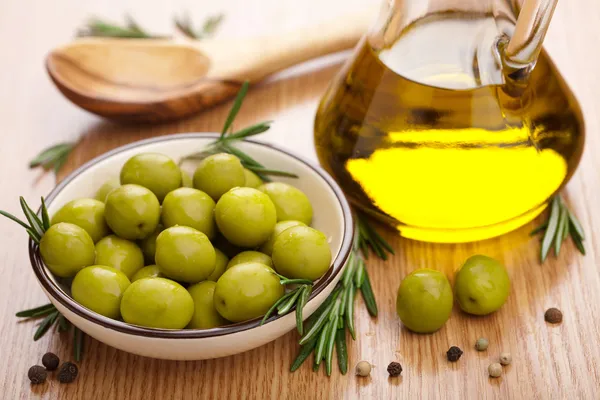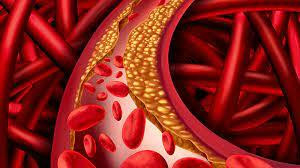Discover how to reduce arterial plaque naturally with three evidence-based ingredients that support heart health, lower inflammation, and improve blood flow.
Introduction
Heart disease remains a leading cause of death globally, and clogged arteries known as atherosclerosis play a central role in many cardiovascular events like heart attacks and strokes. The good news? You can take control of your heart health with simple, natural strategies. In this article, you’ll learn how to reduce arterial plaque naturally by incorporating three scientifically supported ingredients into your daily routine.
What Is Arterial Plaque?
Arterial plaque is a sticky substance made up of fat, cholesterol, calcium, and other materials found in the blood. Over time, this buildup narrows arteries and reduces blood flow, increasing the risk of heart complications.
Common Risk Factors:
High LDL (“bad”) cholesterol
Low HDL (“good”) cholesterol
High blood pressure
Smoking
Diabetes
Poor diet
Sedentary lifestyle
Family history of heart disease
How to Reduce Arterial Plaque Naturally: Top 3 Ingredients
Extra Virgin Olive Oil (EVOO)
Why it works:
Extra virgin olive oil is a cornerstone of the Mediterranean diet, which is linked to lower heart disease risk. It’s rich in monounsaturated fats and polyphenols, such as oleocanthal and hydroxytyrosol.

Key Benefits:
Reduces LDL oxidation, preventing plaque buildup
Promotes anti-inflammatory activity
Enhances blood vessel elasticity
Boosts HDL levels (the “good” cholesterol)
How to use it:
Drizzle 1–2 tablespoons of extra virgin olive oil over salads or cooked vegetables daily.
Chia Seeds
Why it works:
Chia seeds are tiny but powerful. They’re high in omega-3 fatty acids, soluble fiber, and antioxidants that can help improve lipid profiles and support arterial health.
Key Benefits:
Omega-3s lower triglycerides and inflammation
Fiber binds to cholesterol and removes it from the body
Supports healthy blood sugar levels
How to use it:
Soak 1–2 teaspoons in water or mix into yogurt or smoothies.
Cayenne Pepper
Why it works:
Cayenne pepper contains capsaicin, a compound that helps increase circulation, lower blood pressure, and reduce cholesterol levels—key factors when learning how to reduce arterial plaque naturally.
Key Benefits:
Stimulates nitric oxide production for better blood flow
Acts as a natural blood thinner
Enhances fat metabolism
How to use it:
Add a pinch to meals or drinks. Start small if you’re not used to spicy food.
Heart-Supporting Recipe Cardiovascular Wellness Elixir
1 tsp soaked chia seeds
1 tbsp extra virgin olive oil
A pinch of cayenne pepper
Mix all in warm water or juice and consume before breakfast
This natural blend helps fight inflammation, lower cholesterol, and keep your arteries flexible.
Precautions
Cayenne may irritate the stomach in sensitive individuals.
If you’re on blood thinners or have chronic health conditions, consult your doctor before making dietary changes.
Additional Tips on How to Reduce Arterial Plaque Naturally

Aside from dietary changes, adopting the following lifestyle habits is essential:
Quit smoking
Exercise regularly (30 minutes a day)
Manage stress through meditation or deep breathing
Get regular health checkups
Prioritize sleep (7–8 hours/night)
Conclusion
Understanding how to reduce arterial plaque naturally empowers you to take control of your cardiovascular health through small, sustainable changes. By integrating heart-friendly ingredients like extra virgin olive oil, chia seeds, and cayenne pepper into your diet, you not only support arterial health but also reduce your risk of heart disease in the long run.
References
Estruch, R., et al. (2018). Primary Prevention of Cardiovascular Disease with a Mediterranean Diet Supplemented with Extra-Virgin Olive Oil or Nuts. New England Journal of Medicine.
Gill, S. K., et al. (2021). Dietary Fiber and SCFAs in the Regulation of Gut Health. Nutrients.
McCarty, M. F., et al. (2015). Capsaicin May Have Important Potential for Promoting Vascular and Metabolic Health. Open Heart.
Vuksan, V., et al. (2017). Chia Seeds and Cardiometabolic Risk Factors. Journal of Nutrition.
Disclaimer: This article is for informational purposes only. Consult a healthcare professional before making dietary changes, especially if managing a medical condition.